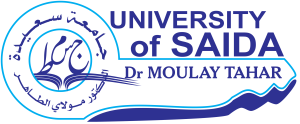Quizz
Quiz: Essential Skills for Writing Results in Research Papers
What are some key skills required for effectively writing the Results section of a research paper?
a) Extensively interpreting and discussing findings.
b) Including only positive results that support the hypotheses.
c) Reporting results clearly and concisely.
d) Omitting any negative results to avoid confusion.
True or False: Some journals integrate the Results section with the Discussion under the title "Results and Discussion."
Which of the following is NOT one of the inquiries that the Results section should address?
a) What were my discoveries?
b) What unexpected findings contradicted my hypotheses?
c) What was the longest section of the research paper?
d) What was absent or not discovered?
What is the recommended approach for structuring the Results section?
a) Presenting extensive interpretations and discussions.
b) Organizing results in a random order.
c) Following the order of protocols or procedures outlined in the Methods section.
d) Including all data without any analysis or commentary.
When should significant negative results be included in the Results section?
a) Never, as they may confuse readers.
b) Only if they support the research hypotheses.
c) Always, as they contribute to the scientific discussion.
d) Only if they are unexpected and relevant to the research aims.
Which tense is commonly used when reporting research findings?
a) Present continuous
b) Past simple
c) Future perfect
d) Present perfect
Which of the following is an example of an impersonal style in reporting results?
a) "We found that..."
b) "There was a perceived..."
c) "The experiment was conducted..."
d) "Our findings indicated..."
What is the purpose of commenting on figures and tables in the Results section?
a) To confuse readers with unnecessary details.
b) To highlight key findings and their significance.
c) To exclude any contradictory results.
d) To add personal opinions and interpretations.
True or False: The Results section should conclude with a summary of key findings and their implications for further research.
How can you assess the quality of your Results section?
a) By including all data, regardless of relevance.
b) By using vague language to describe results.
c) By refraining from mentioning methodological aspects.
d) By following a self-assessment checklist and seeking feedback.
Answers:
c) Reporting results clearly and concisely.
True
c) What was the longest section of the research paper?
c) Following the order of protocols or procedures outlined in the Methods section.
d) Only if they are unexpected and relevant to the research aims.
b) Past simple
b) "There was a perceived..."
b) To highlight key findings and their significance.
True
d) By following a self-assessment checklist and seeking feedback.
Méthode d’évaluation : Note la plus haute
